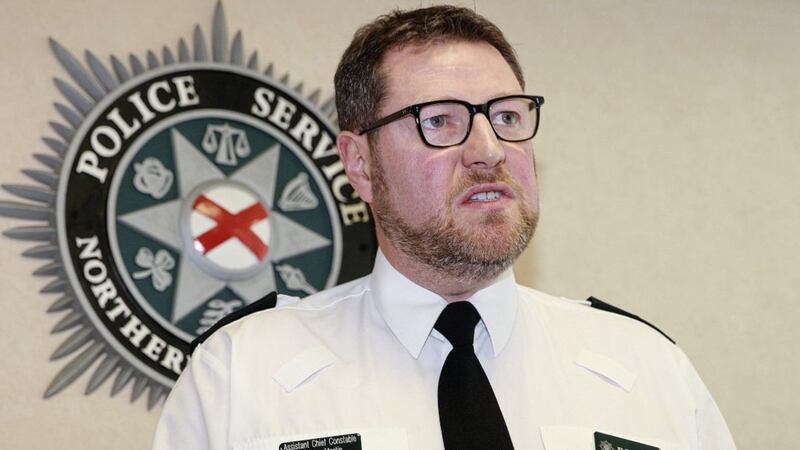MORE than a third of the PSNI's specialist crime operations detectives could choose to retire within two years - leaving a "capability and capacity" gap in the service's largest department.
The `crime op' department, headed by Assistant Chief Constable Stephen Martin, is responsible for Reactive and Organised Crime, Serious Crime, Intelligence, Specialist Operations and Public Protection branches.
Among its targets are organised crime gangs, violent extremists and serious offenders.
Incoming chief constable Simon Byrne has been warned the service "should take steps to meet its future need" for investigators, by Her Majesty's Inspectorate of Constabulary and Fire and Rescue Services (HMICFRS).
Details of its `PEEL: Police efficiency and effectiveness' inspection, carried out in June 2018, were released yesterday.
It warns: "The service has established, through an officer survey, that up to 37 per cent of detectives in the crime operations branch could choose to retire within two years.
"If this were to happen, there would be an obvious detrimental impact on the investigative capability and capacity of the department. The service should take steps to meet its future need for investigative capability and capacity."
There is also a warning about the impact of the current political impasse on the ability of the PSNI to make long-term plans and urges a future assembly to change the way the service is funded.
"The funding arrangements for the PSNI differ from those of forces in England and Wales," inspectors note.
"The service receives the bulk of its funding from the Department of Justice through the Northern Ireland Executive. Unlike forces in England and Wales it does not have the ability to raise funds through local council tax precept, nor can it accrue financial reserves.
"The continued absence of an elected Assembly meant that public sector budgets in Northern Ireland for 2017/18 were allocated by senior civil servants.
"The annual nature of funding to the PSNI and continued uncertainty over future settlements mean that the service is severely restricted in its ability to plan for long-term investment.
"We would encourage a future elected Assembly to recognise the need for a longer-term approach to police funding."
Other recommendations include the introduction of a standardised referral form for vulnerable people "to ensure greater consistency in the safeguarding support provided".
Chief constable George Hamilton, who retires later this month, welcomed the overall `good' grading awarded by inspectors.
"The inspection has shown that we are using our resources well to keep people safe and reduce crime," he said.
"HMICFRS have also found that we are developing sound plans to address forthcoming challenges in spite of ongoing budgetary challenges.
"Finally, we welcome the report’s conclusion that PSNI have improved the way we protect vulnerable victims in society. All of this is evidence of the considerable effort that has gone into improving our service to the people of Northern Ireland over recent years."



